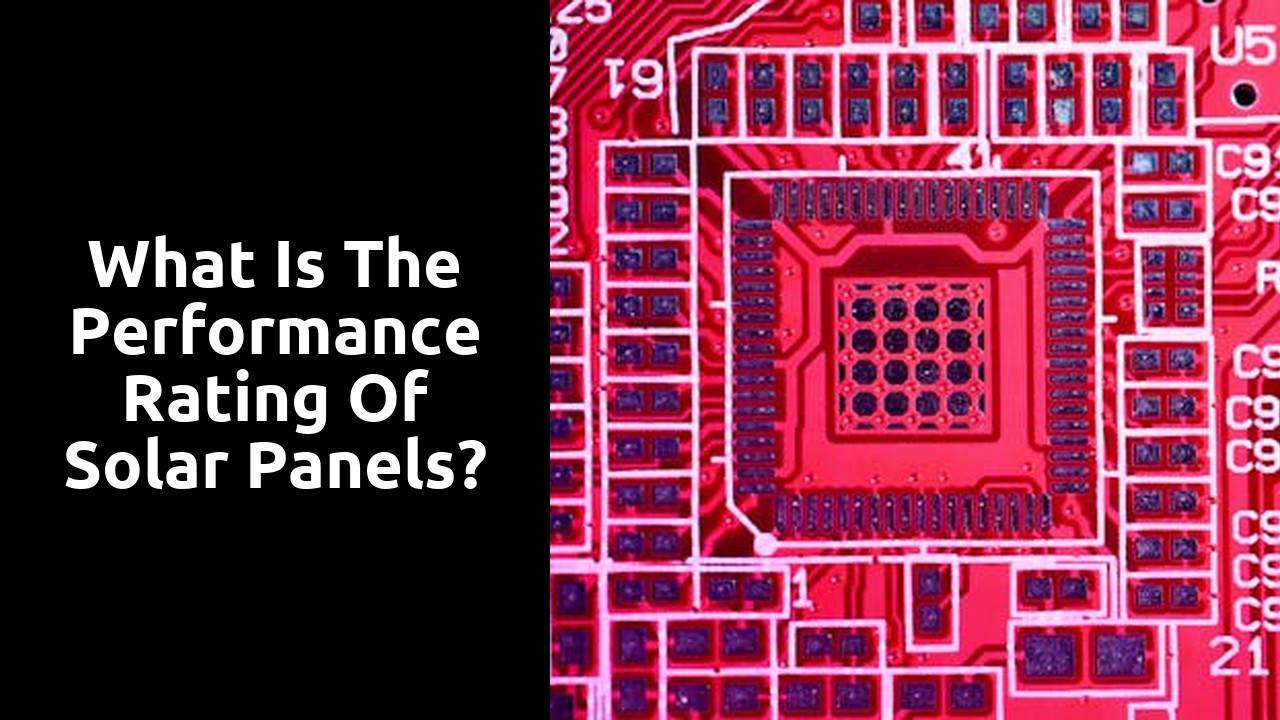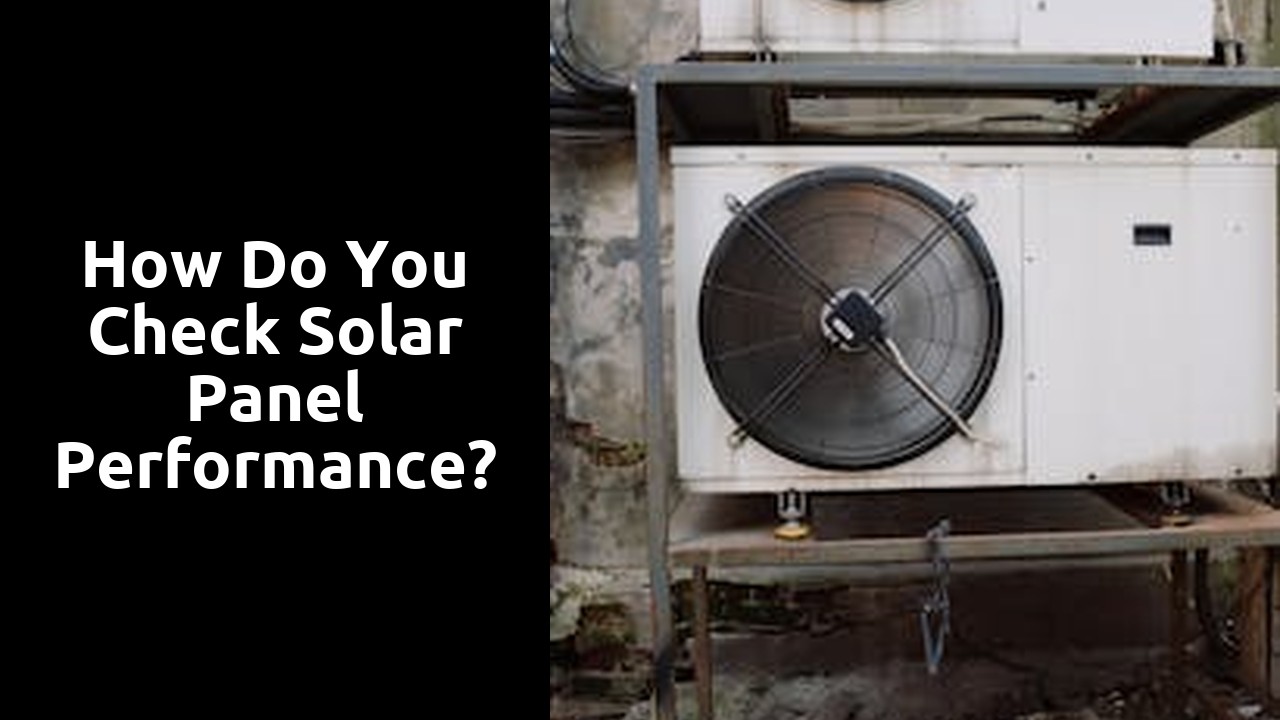
Comparing Solar Panel Models Based on Performance
When assessing solar panel models based on performance, one key metric to consider is the efficiency of the panels in converting sunlight into electricity. This is often represented as a percentage, with higher percentages indicating a more efficient conversion process. In addition to efficiency, it's essential to evaluate the durability and lifespan of the panels to ensure long-term reliability and performance. Solar panel models that have been tested and certified for their performance and durability are generally a safer investment for homeowners looking to install a solar panel system.
To assist consumers in comparing different solar panel models based on performance, manufacturers provide data on the output capabilities of their panels under standard test conditions. This information can be found in datasheets and specifications that outline the wattage output, efficiency ratings, and degradation rates over time. By reviewing this data, consumers can make an informed decision about which solar panel model best suits their needs and budget. Additionally, some manufacturers offer
Solar Panel System Performance Reporting
, which provides real-time data on the performance of the panels to ensure optimal operation and efficiency.
Efficiency vs. Cost
When considering solar panels, striking a balance between efficiency and cost is crucial. A high-efficiency model might come with a steeper price tag initially, but it can ultimately lead to greater savings by generating more electricity over time. On the other hand, opting for a lower-cost panel might be budget-friendly upfront, but its lower efficiency could impact long-term energy production and cost savings. Finding the right balance between efficiency and cost is key to ensuring the best return on investment for your solar panel system.
Solar panel system performance reporting plays a vital role in evaluating the efficiency of a solar installation against its cost. Regular monitoring and assessment of the system's performance can provide insights into how effectively the panels are converting sunlight into usable electricity. By analysing the data gathered from system performance reports, homeowners and businesses can make informed decisions on whether adjustments are needed to optimise the efficiency of their solar panel system and maximise cost savings in the long run.
Monitoring Solar Panel Performance Over Time
Another reputable source for solar energy certification training is the Australian Photovoltaic Institute (APVI). The APVI provides comprehensive training programs focusing on solar energy technology, policies, and best practices. Their Solar Panel System Performance Certification is recognised by industry professionals and can open up various career opportunities in the renewable energy sector. By obtaining certificaTo compare solar panel models based on performance, you can look at their efficiency ratings, which indicate how much sunlight they can convert into electricity. Additionally, consider factors like degradation rates and warranties.tion from sources like the Clean Energy Council and the Australian Photovoltaic Institute, individuals can enhance their expertise and credibility in the field of solar energy.
How do I find the right balance between efficiency and cost when choosing solar panels?Online Courses
Finding the right balance between efficiency and cost involves comparing the initial price of the panels with their long-term performance and energy savings. Consider factors like payback period and return on investment.Online courses offer a convenient and flexible way for individuals to advance their knowledge and skills in solar energy. One popular certification program available through online platforms is the Solar Panel System Performance Certification. This certification provides a comprehensive understanding of solar panel technology, performance evaluation, and system maintenance, equipping individuals with the expertise needed to excel in the solar energy industry.
How can I monitor the performance of my solar panels over time?With the increasing demand for renewable energy solutions, obtaining a Solar Panel System Performance Certification through online courses can open up various career opportunities in the solar energy sector. Whether aspiring to work as a solar energy consultant, system designer, installer, or maintenance technician, this certification can significantly enhance one's credibility and expertise in the field, making them a valuable asset to prospective employers and sustainable initiatives alike.
Monitoring the performance of your solar panels over time can be done through regular inspections, checking output data provided by monitoring systems, and comparing it with the expected performance.Future Prospects with Solar Energy Certifications
What are degradation rates when it comes to solar panels?As the demand for renewable energy sources continues to rise, individuals holding solar energy certifications are well-positioned for promising career opportunities. The completion of a Solar Panel System Performance Certification, for example, demonstrates a comprehensive understanding of solar technologies and the ability to optimize system efficiency. Employers in the renewable energy sector value these specialised skills and knowledge, offering a range of potential roles to certified professionals.
Degradation rates refer to the rate at which a solar panel's efficiency decreases over time. It is important to consider degradation rates when assessing the long-term performance and durability of solar panels.Furthermore, with an increasing focus on sustainability initiatives across industries, the future prospects for individuals with solar energy certifications are promising. Businesses are actively seeking ways to reduce their carbon footprint and transition towards greener practices, creating a demand for experts in solar energy systems. Holding recognised certifications not only enhances job prospects but also opens doors to various roles in consulting, installation, maintenance, and research within the solar energy field.
How can I enhance the efficiency of my solar panels through installation?Sustainability Initiatives
You can enhance the efficiency of your solar panels through proper installation techniques, such as positioning them to receive maximum sunlight exposure and adjusting the angle for optimal performance.Sustainability initiatives are vital in addressing the pressing global environmental challenges we face today. In the context of solar energy, ensuring that systems are designed and operated in a sustainable manner is of utmost importance. A key aspect of sustainability in the solar energy sector is the certification of solar panel system performance. Solar panel system performance certification guarantees that the systems employed meet specific industry standards and operate efficiently to reduce environmental impact.
What is the significance of the positioning and angle of solar panels for maximum output?Moreover, the emphasis on sustainability initiatives goes beyond just the deployment of solar energy systems. It extends to promoting responsible energy consumption and reducing carbon footprints. By integrating the principles of sustainability into all facets of solar energy projects, including design, installation, and maintenance, we can foster a more environmentally conscious approach towards energy generation and consumption. Solar panel system performance certification consequently plays a critical role in ensuring that solar energy projects align with sustainable practices.
The positioning and angle of solar panels are crucial for maximizing their output. By positioning them in a way that they receive direct sunlight for the longest duration and adjusting the angle based on your location's latitude, you can optimize their performance."""FAQS
What are the career opportunities with solar energy certifications?